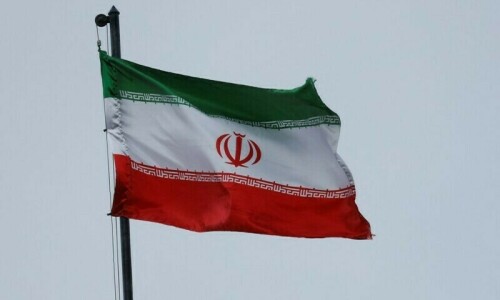JOSH Malihabadi is perhaps the most misunderstood Urdu poet of the 20th century. He is also not read anywhere near as much as he deserves.
This has many reasons, foremost of which is that when he was alive, his detractors (a majority of whom were not from the world of literature) left no stone unturned in maligning his character and discovering elements in his poetry that had nothing to do with him. As a result, Josh often became a victim of state oppression and was sidelined from literary circles.
To boot, Josh sahib was a straight-shooter, was known for calling a spade a spade, and seldom entertained mediocrity, which, of course never helped.
Josh Malihabadi’s famous autobiography, Yadon Ki Barat, despite being hailed by critics as a masterpiece, upset some from the moral brigade.
Therefore, a poet who had unparalleled command over the Urdu language, and whose nazms and rubaiyat were celebrated as modern-day classics, was sidelined. It eventually turned him into an under-discussed literary genius.
Things are looking up now. Josh: Mere Baba — shakhs aur shaaer is an attempt, and a good one at that, to set the record straight and bring to light those aspects of Josh sahib’s life and work that had either not been discovered or purposely concealed to prevent the poet from getting his due.
The book is written by Farrukh Jamal Malihabadi, Josh’s (maternal) grandson, with unstinted affection and reverence for his grandfather, whom he called Baba. Yet, he has taken reasonable care to make sure that the book doesn’t reek of family aggrandisement.
Josh: Merey Baba has a great many things that paint a clearer picture of the great poet. Beginning with Hilal Naqvi’s preface and Farrukh Jamal’s own illustrative foreword, there’s an essay by Siraj Anwar Khan (Farrukh’s brother) which immediately gives an insight, albeit miniaturised, into Josh sahib’s personality. Siraj, almost like a devotee, tells us about his Baba’s predilection for munching on fried peas and mentions that Josh was a stickler for correct pronunciation. Once General Ayub Khan, while trying to flatter Josh sahib, said to him that he was a great alam. To this the poet immediately replied that the right word is alim (scholar), not alam. This made Ayub cringe and he gave orders that the cement agency that Josh sahib ran be shut down. And it happened.
The book provides a succinct account of Josh’s family (forefathers, immediate family, children, and so on), saying that poetry was in his genes, and he couldn’t have been anything but a verse-wielder. His relationships with different members of the family are also given proper space, proving he was a grounded person. The accounts of Josh sahib’s relationship with his wife is worth reading over and over.
Next follows the chapter which deserves a fair deal of concentration. It’s called “Hazrat Josh Ke Ahbab,” and as the title suggests, it’s about those eminent people, from the realm of literature, showbiz, politics, religion, the media and so on, who were his friends and admirers.
The piece on Faiz Ahmed Faiz too is indicative of the camaraderie and the mutual respect that existed between the two distinguished contemporaries. Josh once commented on Faiz, “I don’t have a good opinion of Urdu poets’ disposition. They badmouth each other. In my entire life I have come across only three or four good-natured poets, and Faiz is one of them.”The author writes that legendary Indian thespian Dilip Kumar is also a Josh buff. He would never sit next to the poet but would place himself at his feet as a mark of respect.
The book also touches upon miscellaneous aspects of Josh’s life, including his religious leanings, his tiff with military rulers, the time when he struggled against the British (and was called shaaer-i-inqilab) and his last days. It makes for touching reading.
However, the section “Muntakhib Mazameen” reads head and shoulders above the rest of the book. It contains three of Josh sahib’s brilliantly worded essays: “Urdu adabiyat mein inqilab ki zaroorat” (The need for a revolution in Urdu literature); “Tamam aqwam behter halat mein hain, ham kiyun nahin?” (All other nations are doing well, why aren’t we?); and “Khudkar parwarishgah-i-fikr-o-qalam Pakistan” (Self-reliant nursery for knowledge and writing). They are extraordinary examples of articulating difficult ideas with scholarly ease.
The last chapter of Josh: Merey Baba contains a selection from Josh’s poetry, which of course contains his tour de force nazm, “Gul badani,” as well as some remarkable quatrains.
While a captivating read, the language of Josh: Mere Baba is far too plain and at times borders on being uninteresting. There’s nothing wrong with simple language and it may not have been felt if the book hadn’t included Josh sahib’s three essays which ended up serving as a contrast.
Josh: Mere Baba — shakhs aur shaaer By Farrukh Jamal Malihabadi Poorab Academy, Islamabad ISBN 978-969-8917-84-5 296pp. Rs350

















































